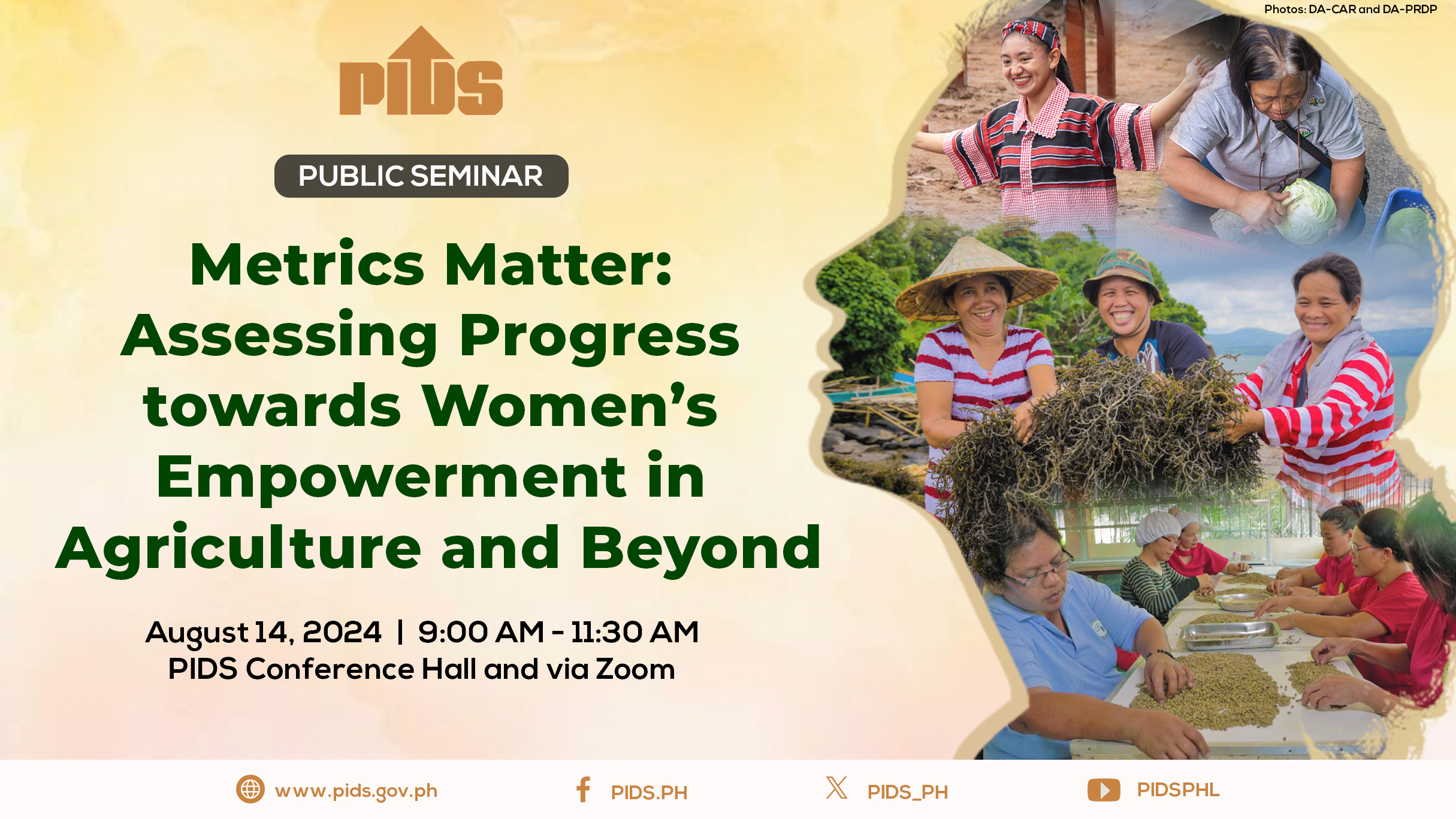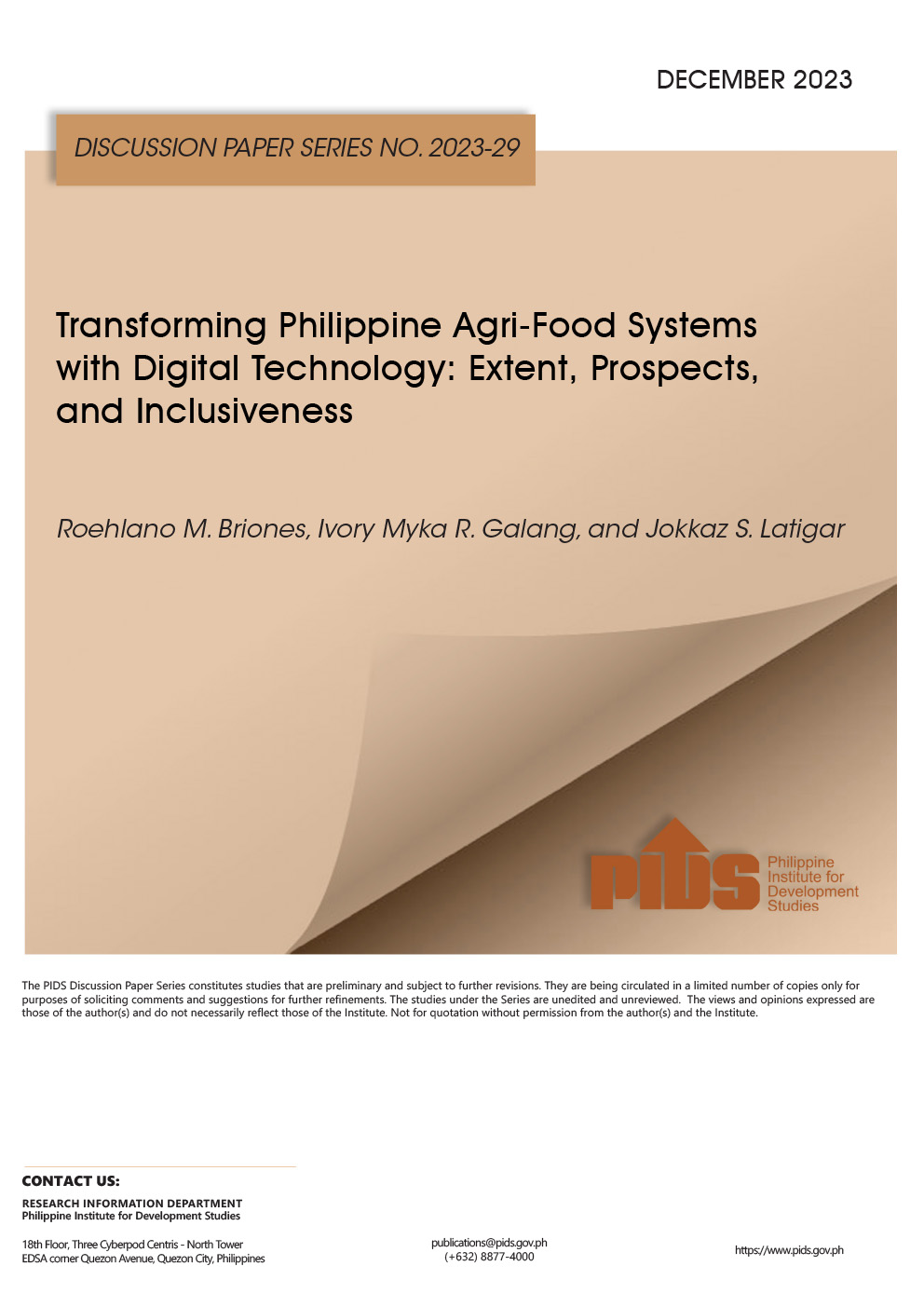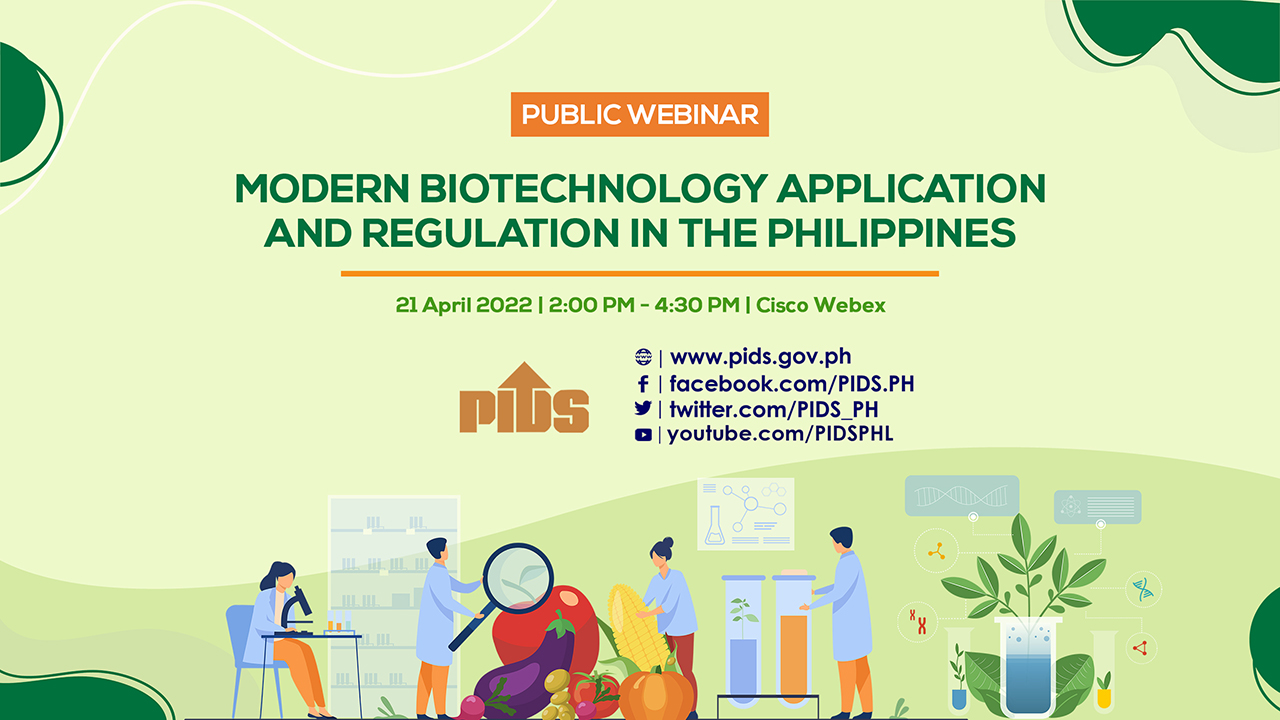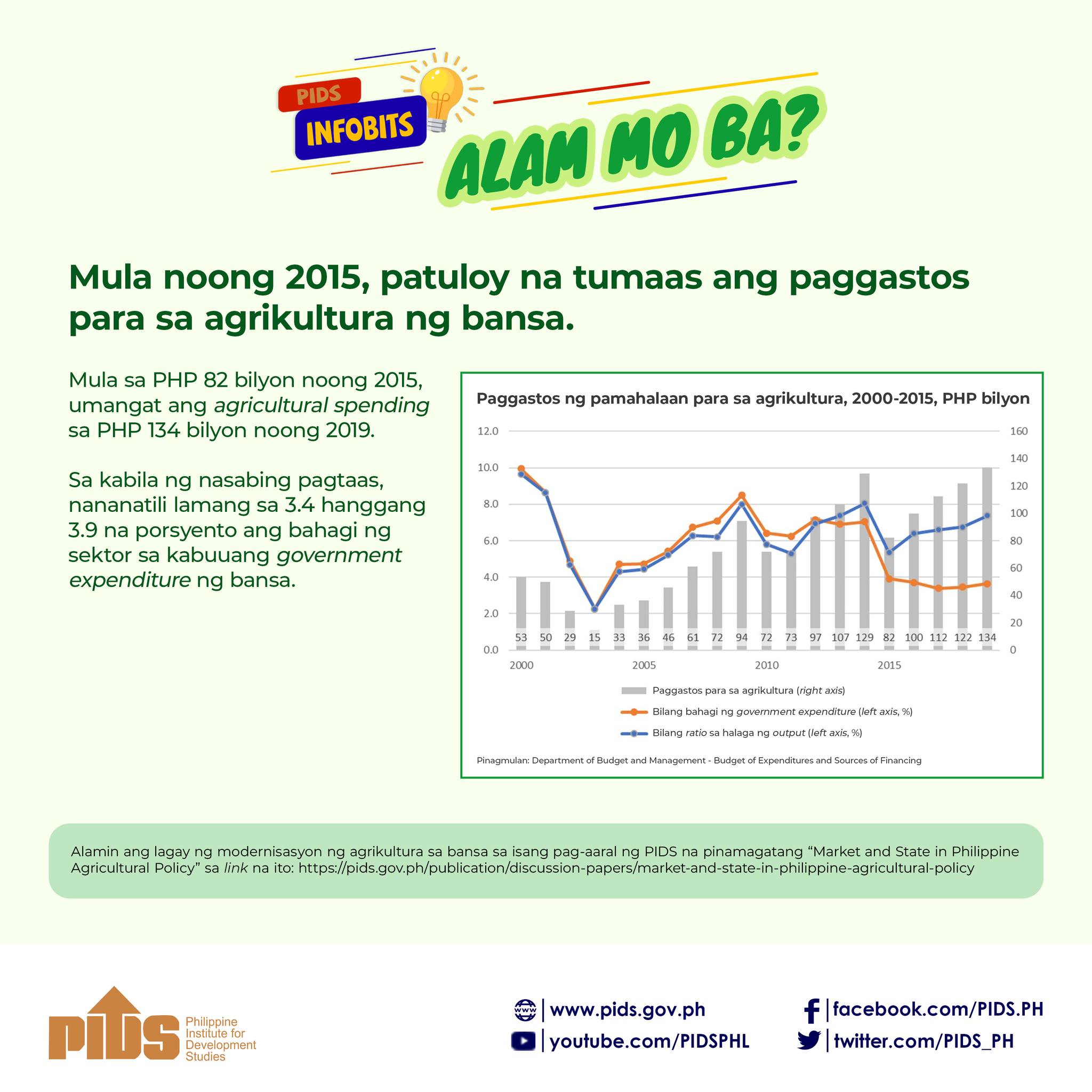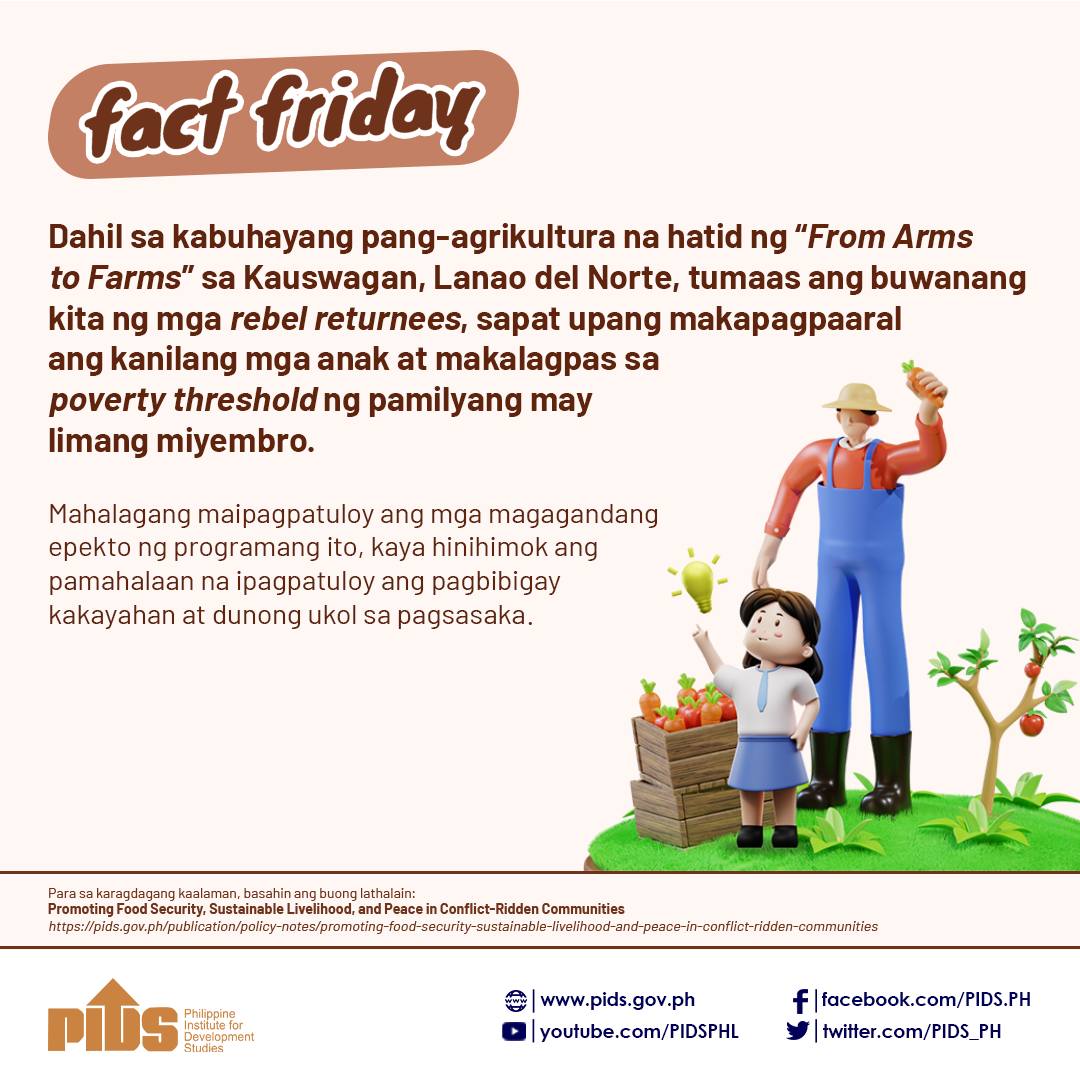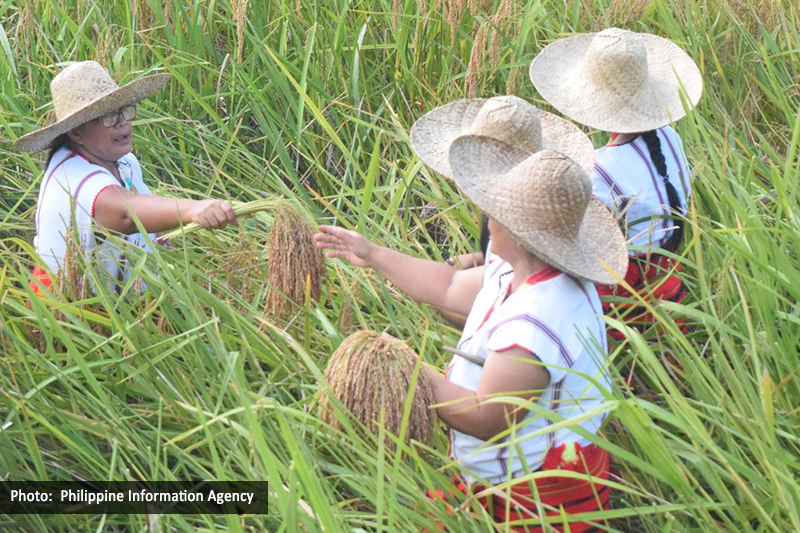
There is a notable data gap in assessing women’s empowerment, especially in agriculture, due to the absence of comprehensive, nationally representative data. This issue is particularly evident in the Philippines, where accurate assessment and effective action on women’s empowerment at the national level remain wanting. The introduction of the Women’s Empowerment Metric for National Statistical Systems (WEMNS) marks a significant advancement in addressing this challenge.
Introduced at a recent seminar hosted by the Philippine Institute for Development Studies (PIDS) in collaboration with the International Food Policy Research Institute (IFPRI), WEMNS offers a streamlined and efficient approach to measuring women’s empowerment across various dimensions. The seminar highlighted the tool’s critical role in enhancing the evaluation and promotion of women’s empowerment, aligning with national development goals.
WEMNS builds upon and refines the Women’s Empowerment in Agriculture Index (WEAI), which was developed in 2012. It measured women’s inclusion in agriculture through household surveys, but it faced limitations in capturing the full complexity of women’s empowerment.
“Empowerment is not just about decision-making within the household,” explained IFPRI Senior Research Fellow Agnes Quisumbing, who presented the WEAI at the seminar. “It also includes dimensions like time allocation, access to financial services, property rights, and freedom from violence,” she added.
Quisumbing emphasized the importance of incorporating new indicators that assess both intrinsic and instrumental agency—such as women’s ability to make important life choices and their participation in community organizations. “By focusing on these broader indicators, we can better understand the constraints women face and how these affect their overall empowerment,” she noted.
To address these limitations, the pro-WEAI was developed under the Gender Agriculture and Assets Project Phase 2 (GAP2). This version aimed to evaluate the impact of agricultural projects on women, from direct benefits to broader societal transformation.
However, while pro-WEAI has proven effective in assessing agricultural projects in South Asia and sub-Saharan Africa, WEMNS is designed to offer a more comprehensive and adaptable tool for wider applications.
“The pro-WEAI has served us well, but its specificity to agriculture means we need a more versatile tool for national-level implementation,” said IFPRI Senior Research Coordinator Dr. Hazel Malapit during her discussion on WEMNS.
WEMNS was developed to evaluate empowerment across four key areas: inner strength, practical capabilities, collective influence, and access to resources. By simplifying data collection processes while still capturing the essential dimensions of empowerment, WEMNS offers a pragmatic solution for policymakers.
“This leaner tool is suitable for national statistical systems and can be implemented at scale,” Malapit explained, citing successful pilot projects in countries like Bangladesh, Malawi, Nepal, and Guatemala. These pilots demonstrated that WEMNS could provide actionable insights into women’s empowerment while being less resource-intensive than its predecessor.
However, Malapit brought up the broader implications of these tools, warning that without consistent and reliable indicators, efforts to track and promote gender equality risk becoming ineffective.
“Metrics matter if they motivate, monitor, and shape policy,” she asserted, emphasizing that measurable progress toward gender equality is essential for making a real impact on the ground.
Transitioning from theoretical frameworks to practical applications, former PIDS President Dr. Celia Reyes addressed the challenges of integrating gender-sensitive indicators into national development programs and surveys.
“Incorporating these indicators into national surveys will allow us to monitor progress at a larger scale and make informed decisions that truly benefit women, especially in rural areas,” she asserted during her comments on the two IFPRI presentations. She underscored the need for robust, context-specific data to drive effective interventions and address regional challenges.
PIDS Senior Research Fellow Dr. Jose Ramon Albert, also providing comments to the presentations, stressed the importance of data disaggregation to fully capture the essence of women’s empowerment.
“Data disaggregation is essential for understanding the different dimensions of empowerment,” Albert explained. “It allows us to see not just where women stand, but also how various factors such as age, education, and geographic location affect their empowerment,” he continued. This level of detail, he argued, is crucial for designing interventions that are tailored to the specific needs of different groups of women.
Albert cautioned that treating women as a homogenous group is ineffective for policy development. “By looking at the data more closely, we can develop policies that are more targeted and effective in addressing the unique challenges faced by women in different contexts,” he stressed.
Watch the recording of the webinar at https://bit.ly/pidslive081424. ###

